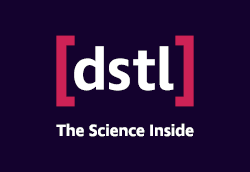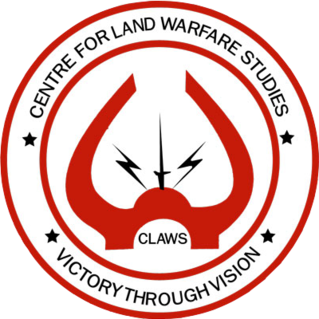
A think tank, or policy institute, is a research institute that performs research and advocacy concerning topics such as social policy, political strategy, economics, military, technology, and culture. Most think tanks are non-governmental organizations, but some are semi-autonomous agencies within government or are associated with particular political parties, businesses or the military. Think-tank funding often includes a combination of donations from very wealthy people and those not so wealthy, with many also accepting government grants.

Chatham House, also known as The Royal Institute of International Affairs, is an independent policy institute headquartered in London. Its stated mission is to provide commentary on world events and offer solutions to global challenges. It is the originator of the Chatham House Rule.

Stockholm International Peace Research Institute (SIPRI) is an international institute based in Stockholm. It was founded in 1966 and provides data, analysis and recommendations for armed conflict, military expenditure and arms trade as well as disarmament and arms control. The research is based on open sources and is directed to decision-makers, researchers, media and the interested public.

The Henry Jackson Society (HJS) is a trans-Atlantic foreign policy and national security think tank, based in the United Kingdom. While describing itself as non-partisan, its outlook has been described variously as neoliberal and as neoconservative. The Society identifies itself with a "forward strategy" to spread democracy and liberal values globally. It is currently focused primarily on supporting global democracy in the face of threats from China and Russia. The Society is also known for its reports related to Islamic and far-right extremism. The Society is named after the American politician Henry M. Jackson.

The Defence Science and Technology Laboratory (Dstl) is an executive agency of the Ministry of Defence of the United Kingdom. Its stated purpose is "to maximise the impact of science and technology for the defence and security of the UK". The agency is headed by Paul Hollinshead as its Chief Executive, with the board being chaired by Adrian Belton. Ministerial responsibility lies with the Minister for Defence Procurement.
The Royal United Services Institute , registered as Royal United Service Institute for Defence and Security Studies and formerly the Royal United Services Institute for Defence Studies, is a British defence and security think tank. It was founded in 1831 by the Duke of Wellington, Sir Arthur Wellesley.

The Netherlands Institute of International Relations Clingendael or Clingendael Institute is a Dutch think tank and academy on international relations. Based in Wassenaar on the municipal border with The Hague, the institute also publishes Clingendael Magazine 'Spectator', an online monthly on international politics. As of 2012, the institute is organised into two departments: Clingendael Research and Clingendael Academy.

The Manohar Parrikar Institute for Defence Studies and Analyses (MP-IDSA), New Delhi, is India's foremost think tank for advanced research in international relations, especially defence, strategic and security issues, and providing training to civilian, military and paramilitary officers of the Indian government. It is funded by the Indian Ministry of Defence but operates as a non-partisan and autonomous body. It aims to promote national and international security by carrying out research on defence and security-related issues and disseminating the knowledge among the policy-makers and wider public.

The United Nations Interregional Crime and Justice Research Institute (UNICRI) is one of the five United Nations Research and Training Institutes. The Institute was founded in 1968 to assist the international community in formulating and implementing improved policies in the field of crime prevention and criminal justice. Its work currently focuses on Goal 16 of the 2030 Agenda for Sustainable Development, that is centred on promoting peaceful, just and inclusive societies, free from crime and violence.
The Lakshman Kadirgamar Institute of International Relations and Strategic Studies (LKI) is a foreign policy think tank currently based in Colombo, Sri Lanka. The Minister of Foreign Affairs of Sri Lanka is ex officio the Chairman of LKI. LKI conducts independent research and functions as an autonomous organisation. LKI was established in 2006 and is named after the late Sri Lankabhimanya Lakshman Kadirgamar, PC, MP, and former Sri Lankan Foreign Minister. The Institute is the realisation of a goal actively pursued by the late Minister, to fulfill the country's need for a think tank in the field of foreign policy research and engagement. Its stated mission is 'to engage in independent research of Sri Lanka’s international relations and strategic interests, and to provide insights and recommendations that advance justice, peace, prosperity and sustainability.'
The International Centre for Policy Studies (ICPS) is an independent NGO, founded in 1994 which aims to promote public policy concepts and practice and apply them to influential policy research that affects both the public and private sectors in Ukraine.
The Vivekananda International Foundation (VIF) is an Indian public policy think-tank. It is considered to be aligned to right-of-centre in its policies.
EGMONT - The Royal Institute for International Relations, also known as the Egmont Institute, is an independent and non-profit Brussels-based think tank dedicated to interdisciplinary research on international relations. The main activities of the Egmont Institute include research, the organisation of events, and training for civil servants. The Institute is associated to the Foreign Ministry of Belgium, from which it receives a substantial part of its funding. The Egmont Institute furthermore receives funding from EU Institutions, membership fees and private partners.

The Centre for Land Warfare Studies (CLAWS), New Delhi, India is an autonomous think tank on strategic studies and land warfare. The mandate of CLAWS covers national security issues, conventional military operations and sub-conventional warfare. CLAWS is registered under the Societies Registration Act, 1860 and is a membership-based organisation. It is governed by a Board of Governors and an Executive Council. Research at CLAWS is futuristic in outlook and policy-oriented in approach. CLAWS disseminate the products of its research to its members, members of the armed forces, decision makers, members of the strategic community and interested civilians. It also seeks to contribute to developing a pro-active strategic culture for India. The objective of the organization is to convey policy recommendations based on interactions, consensus and research projects to policymakers and experts. CLAWS has been ranked 67th amongst World Top Defence and National Security Think Tanks as per '2017 Global Go To Think Tank Report' published by University of Pennsylvania, USA.
The Institute for Security Studies, also known as ISS or ISS Africa, described itself as follows: "an African organisation which aims to enhance human security on the continent. It does independent and authoritative research, provides expert policy analysis and advice, and delivers practical training and technical assistance." Their areas of research include transnational crimes, migration, maritime security, development, peacekeeping, peacebuilding, crime prevention, criminal justice, conflict analysis and governance. It is the largest independent research institute in Africa dealing with human security and is headquartered in Pretoria, South Africa, with offices in Kenya, Ethiopia and Senegal. In 2019, it was ranked 116th by the Global Go To Think Tanks Report and 55th among think tanks outside the United States.
The Centre for Air Power Studies was established as a research think tank on 15 September 2001, under an independent, non-profit, non-governmental trust registered in New Delhi titled "Forum for National Security Studies", officially registered under the existing regulations in New Delhi U/S 12 A of the IT Act in April 2002 and took over responsibilities for governing as the Centre for Air Power Studies (CAPS).

The University of Public Service is a higher educational institution in Budapest, Hungary. Established in 2012, it is one of the youngest universities in Central and Eastern Europe; however, its faculties as former independent colleges look back much earlier.

The Latvian Institute of International Affairs is a think tank in Latvia. Founded on May 20, 1992, the organization seeks to provide “Latvia's decision-makers, experts, and the wider public with analysis, recommendations, and information about international developments, regional security issues, and foreign policy strategy and choices”. They achieve this by publishing original research, hosting conferences, and partnering with other institutions in these tasks. Their research focuses on important topics such as Latvian foreign policy; transatlantic relations; European Union policies, including its neighborhood policy and Eastern Partnership; and multilateral and bilateral relations with Russia. The LIIA is a nonprofit and does not receive regular government funding. Its funding primarily comes from its partners for individual projects. While the LIIA is a non-governmental organization, they do advise the Latvian Parliament, as well as other decision-making bodies within and outside of Latvia. The current director (2011) of LIIA is Andris Sprūds.










